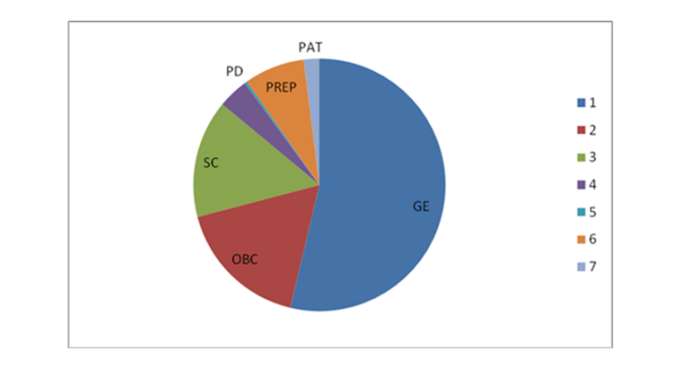Here is the next post in the series of Student Blog Contest. This post is authored by Pallavi Singh.
The paper evaluates caste based reservation system in India. The Primary stated objective of the Indian reservation system is to increase the opportunities for enhanced social status for underprivileged. The reservation system exists to provide opportunities for the members of the Scheduled Caste and Scheduled Tribes. Reservation is working in the opposition direction to its main objective as is demarcating the society further. It is being used to uplift one section of the society at the cost of another, which is not fair. Instead of this there should be equal opportunities for all moreover a capable candidate does not need any certificate of being from a lower caste to prove their worth. It is his mind, education and ability to compete that can bring change in life. Taking a seat just by showing your under privileged certificate won’t give you anything, but just the degree or a job. Also the reservation system in India is creating a workforce which is not capable enough to compete at the global level. India needs people for growth and development but reservation is adding undeserving candidates as well. To uproot casteism it is important that we fight the reservation system which alone will lead us to development, competency, equality and unity. Our constitution clearly is a reservation-friendly constitution but nowhere in the constitution is the term ‘backward classes defined’.
Therefore how can caste be a criteria for reservation because there many economically worse off children belonging to the forward classes but they cannot get the fruits of such reservation merely by virtue of belonging to the ‘general’ category. Sometimes these children belonging to the backward classes do not even deserve and still possess the necessary merit as against a child who studied very hard for months to get a seat, thereby snatching away that seat just because he comes from a particular religion or caste for which our government provides reservation. It’s high time we shifted from this criterion of reservation to the economic criteria. In a case Balaji v/s State of Mysore (AIR 1963 SC649) it was held that ‘caste of a person cannot be the sole criteria for ascertaining whether a particular caste is backward or not. The US has long abandoned the quota system for affirmative action. They have put in place a point system under which candidates from among the Blacks, backward regions, immigrants, etc., are given a few extra points in admission and appointment procedures. Reservations are nothing but means to prosper the vote banks of politicians. They are hindering the country’s growth, development and competency in all aspects. In view of the present scenario, to remove this evil it is needed to keep aside the narrow vote bank politics and think truly for the betterment of the under-privileged and honestly pursue policies and programmes for their upliftment. Emphasis should laid more on educational schemes and the benefit of reservation should be given to who deserves it, like economically backward rather than based on caste system. Efforts are needed at maximizing the educational infrastructure, since reservation is not the only solution to uplift the backward. Effective implementation is needed for policies which provide the basic necessities like education, shelter etc. Backward classes should be put in general category upon reaching self-sufficiency, this will reduce the number of such castes and reservation will become more meaningful. Keeping justified merit criteria even for reserved categories.
– Post authored by Pallavi Singh



